 |
| Dr. Brittany U. Carter, Wellsource Director of Health & Research |
Good lifestyle habits are positively associated with happiness and mental health, according to data from Wellsource, a premier provider of evidence-based, NCQA-certified Health Risk Assessments (HRA) and self-management tools. The company examined self-reported HRA data from more than 270,000 individuals from the ages of 18 to 85 to see what influences mental health, specifically happiness. Their published data review provides recommendations for population health professionals to consider for improving happiness and lessening psychological distress, which can lead to a more productive workforce.
"Our data showed that people who said they were 'very happy' practice healthy habits, have social support, cope well with stress, and are hopeful about the future," said Dr. Brittany U. Carter, Director of Health and Research at Wellsource. "In contrast, people who said they were unhappy more often reported participating in negative lifestyle habits, such as tobacco use and binge drinking, and were less likely to engage in positive ones, such as eating healthy and exercising."
The Wellsource Data Review revealed several "happiness habits" such as:
- Sleep is highly associated with happiness. The odds of an individual who did not sleep 7-8 hours being unhappy is three times higher compared to an individual who did.
- Good nutrition increases the odds for happiness. The odds of an individual who met the recommended daily intake of fruits being happy are 2.03 times higher compared to those who did not meet the recommended daily intake.
- Physical activity increased happiness odds, with every one-hour increase per day raising those odds by 22 percent. Similarly, every one-hour increase in sitting per day decreased the odds of being happy by 11 percent.
Twenty-two percent more unhappy individuals reported binge drinking than very happy individuals, and 14 percent more reported using tobacco. They were also less hopeful about the future than happy individuals (27 percent vs. 98 percent), less able to cope with stress (24 percent vs. 92 percent), and less likely to rate themselves as having good health (43 percent vs. 96 percent).
Wellness professionals looking to improve outcomes in their populations should consider the following strategies:
- Align improvement opportunities with interest and readiness to change
- Target modifiable behaviors associated with happiness and mental health, such as sitting less or eating more fruits and vegetables
- Connect individuals at risk for psychological distress with interventions such as counseling, addiction cessation programs, and classes that teach life skills that help with stress
"Health and wellness professionals rely on self-reported health and lifestyle information like data in our review to measure mental health, which can't be diagnosed by blood or other tests like physical illnesses can," said Dr. Carter. "Administering an assessment that asks about indicators of psychological distress is a good first step toward achieving positive mental health and higher productivity in your population. For example, asking just two questions about having little interest and pleasure in doing things and feeling down, depressed, or hopeless can identify those at risk for depression. An HRA provides a confidential, effective way for wellness and population health professionals to gather this kind of information, triage at-risk individuals into mental health plans, or encourage positive lifestyle choices."
For the full Wellsource Annual Data Review, visit here.








